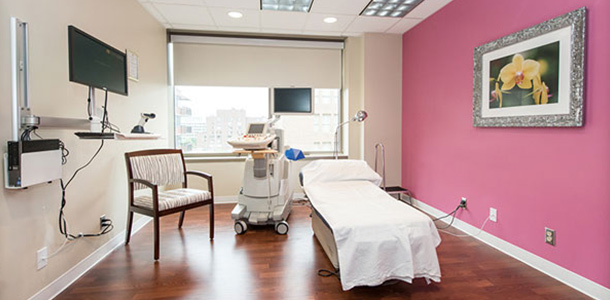Automated Breast Ultrasound (ABUS) is a newer approach to finding up to 30 percent more cancers in women who have dense breast tissue (more fibrous or glandular than fatty), even if that is their only additional risk factor.
ABUS can be used to detect additional cancer in women where mammography alone may be insufficient due to their greater breast density. Using ultrasound, there is no ionizing radiation and ABUS is a quick, painless and effective way to image dense breasts.
With 3D ultrasound volume and U-Systems software, radiologists can review hundreds of breast tissue image "slices" to look at layers of dense tissue to find breast cancers which may have been missed on a mammogram.
A complete ABUS exam takes about 15 minutes. Positioned comfortably on the exam table, most patients report the ABUS procedure to be painless; however, some women with very sensitive breast tissue have complained about minor discomfort during the scanning process.
Before starting the exam, the ABUS operator attaches a sheer membrane to the ultrasound scanner. A layer of lotion is then applied to the breast, which ensures good contact between the ultrasound transducer and the skin. To guarantee the best image quality, the sheer stabilizing membrane of the somo•v ABUS is positioned on the breast during scanning, which gently flattens the breast tissue against the body and prevents breast movement.
A 10-second preview scan automatically determines the patient's unique breast tissue signature so the ideal ultrasound imaging parameters can be set by the software. During the actual image scan, which takes about 60 seconds, the technologist follows the display monitor in real-time to ensure proper breast coverage and tissue contact during the scan. Typically, three scans are performed on each breast for a complete scan of the breast volume.
A specialized radiologist interprets the ABUS scan along with the woman’s mammogram and clinical history. All together, the result is a more accurate way of detecting breast cancer in women with dense breasts. Women with prior cancer, breast surgery or implants can benefit from the additional information ABUS offers.

